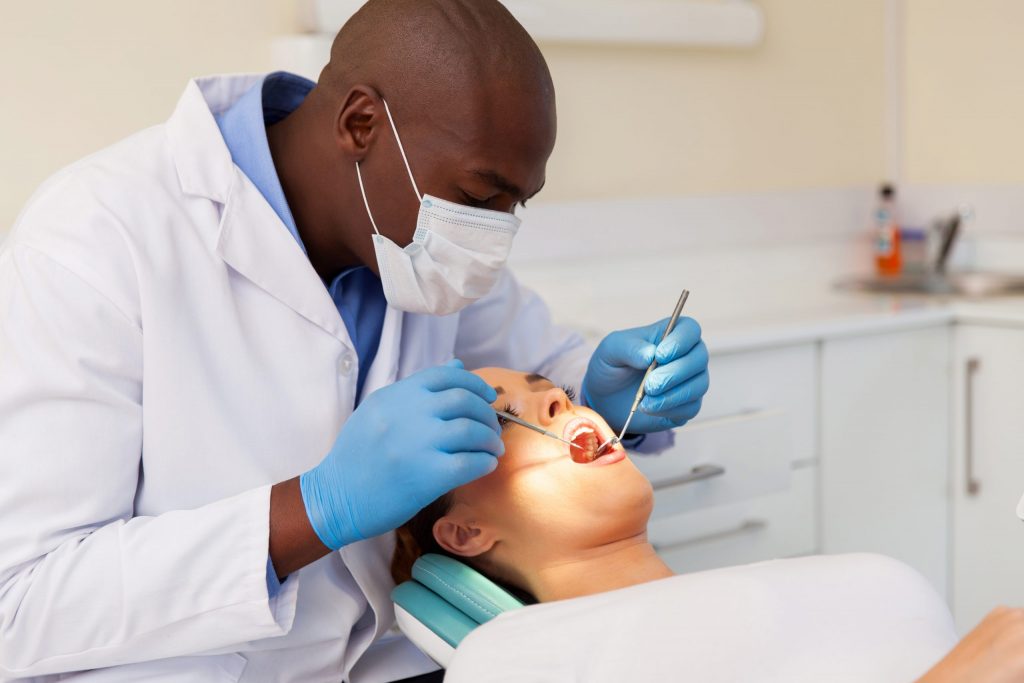Why You Should Pick a Regional Dentist Eugene for Personalized Care
Why You Should Pick a Regional Dentist Eugene for Personalized Care
Blog Article
An Overview to Usual Oral Conditions That Require a Dental professional's Care
Understanding the series of dental conditions that necessitate specialist treatment is vital for keeping optimum dental health and wellness. Toothaches, as an example, can be symptomatic of severe problems such as cavities, broken teeth, or abscesses, each requiring particular interventions like dental fillings or root canals. Gum condition, from the beginning of gingivitis to a lot more extreme periodontitis, emphasizes the importance of normal dental exams and cleanings. Furthermore, impacted wisdom teeth and jaw problems can introduce significant pain and problems. Ensuring prompt check outs to the dental expert can minimize these problems properly, however exactly what are the indicators and treatments involved?
Toothaches
Toothaches are a common dental problem that can range from light pain to serious discomfort, frequently showing a hidden concern that requires specialist interest. This discomfort can come from a selection of sources, including tooth decays, fractured or fractured teeth, and oral abscesses. Each of these conditions presents considerable risks if left without treatment, possibly leading to more extreme difficulties.
Oral dental caries, also known as decays, are created by the buildup of plaque that wears down tooth enamel, leading to holes or pits in the affected teeth. Abscesses are uncomfortable infections at the root of a tooth or in between a tooth and the periodontal, typically resulting from severe degeneration or unattended cavities.
Effective treatment of toothaches entails attending to the source. This might consist of dental fillings for tooth cavities, crowns for split teeth, or origin canals and anti-biotics for abscesses. Early intervention by an oral expert can avoid further wear and tear and ease pain, making certain optimal dental health and wellness.
Gum Disease

The main root cause of gum tissue disease is microbial plaque, a sticky, anemic film that continuously bases on teeth. Poor oral health, cigarette smoking, hereditary tendency, and specific medical problems, such as diabetes mellitus, can aggravate the risk of developing gum tissue illness. Regular dental examinations are vital for early discovery and monitoring of this problem.
Treatment for periodontal disease varies from expert dental cleaning and scaling to advanced treatments like root planing and gum surgery, depending on the extent. Preserving good oral hygiene methods, consisting of cleaning twice daily, flossing, and making use of a disinfectant mouth wash, can dramatically lower the risk of gum condition and promote healthier gums.
Dental Caries
Cavities, likewise called cavities, are an usual dental problem defined by the damage of tooth enamel because of acid-producing microorganisms in the mouth. These bacteria grow on sugars and starches from food and beverages, generating acids that progressively deteriorate the enamel, resulting in cavity development.
Early-stage cavities might disappoint signs and symptoms, but as they proceed, they can cause tooth pain, level of sensitivity to hot or cool, noticeable holes or pits in the teeth, and discoloration. If left untreated, tooth cavities can pass through much deeper layers of the tooth, possibly resulting in extreme pain, infection, and even missing teeth.
Stopping cavities involves a mix of good dental hygiene practices and site web dietary habits. Normal cleaning with fluoride toothpaste, flossing, and regular dental exams are essential. Dental professionals might also recommend additional precautionary measures, such as fluoride treatments and oral sealants, to secure teeth from decay.
Minor cavities can be attended to with oral fillings, which restore the tooth's structure. More sophisticated cases may call for crowns or even origin canal treatment if the decay has gotten to the tooth's pulp.
Impacted Wisdom Pearly Whites
Affected wisdom teeth are a widespread oral concern that happens when the third molars, typically described as knowledge teeth, fail to fully emerge or straighten properly within the mouth. This condition typically results from insufficient room in the jaw or an irregular growth angle of the teeth. Influenced wisdom teeth can bring about a variety of issues, including infection, damage, and pain to nearby teeth.
When wisdom teeth come to be affected, they are frequently partly erupted or stay entirely beneath the gum tissue line. This partial eruption can produce a pathway for bacteria to enter the periodontals, leading to infections that materialize as swelling, pain, and even fever (dentist eugene oregon). Additionally, affected wisdom teeth can apply pressure on bordering teeth, potentially triggering crowding or shifting
An extensive oral assessment, normally involving X-rays, is crucial for detecting affected knowledge teeth. Treatment typically includes surgical removal, done by an oral surgeon. The procedure intends to alleviate discomfort and prevent more issues, such as cysts or damage to bordering bone frameworks. Post-operative care is critical to ensure proper recovery and decrease the risk of infection. Routine oral examinations are recommended click now to keep an eye on the problem and preserve dental wellness.
Jaw Disorders
Verdict

Dental tooth cavities, also recognized as cavities, are created by the accumulation of plaque that erodes tooth enamel, leading to openings or pits in the affected teeth. Abscesses view website are unpleasant infections at the root of a tooth or between the gum tissue and a tooth, normally resulting from serious decay or untreated dental caries.
Influenced wisdom teeth are a prevalent oral issue that occurs when the 3rd molars, typically referred to as knowledge teeth, fall short to totally emerge or line up correctly within the mouth. Influenced wisdom teeth can lead to a selection of issues, including damages, pain, and infection to adjacent teeth.
Furthermore, influenced wisdom teeth can put in pressure on surrounding teeth, possibly triggering crowding or changing.
Report this page